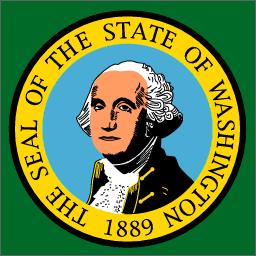I have to admit that I am ambivalent on the subject of this week's blog. I would prefer that state government stay out of promoting private businesses. However, I am a great fan of private space ventures.
A bill has been introduced in the Washington State legislature to involve the state government in nurturing the embryonic space industry in this state. The bi-partisan House bill was introduced by Rep. Jeff Morris, D-Mount Vernon. It would create a "space exploration center" to "boost the industry in Washington." Rep. Morris is the Chair of the House Technology & Economic Development Committee. A public hearing was scheduled for yesterday at the state capitol in Olympia.
Blue Origin, SpaceX, Planetary Resources, Spaceflight Industries are just a few of the private companies that have established major operations in Washington State for the private exploration and exploitation of space. Jeff Bezos' company, Blue Origin, has called for further tax incentives from the Washington legislatures to support space industry in the state. Morris tried unsuccessfully to get a tax break for the space industry last year. There are some space industry tax breaks included in aerospace tax-exemption legislation before the state legislature this year.
The new Morris bill would have the Department of Commerce select a government, non-government or academic agency to manage the new space center. The stated purpose of the new center would be to "coordinate Washington’s young space industry, to tackle joint university-industry research on space technologies, and bolster space-oriented education in the state’s universities. The center would also work with space companies of all sizes to identify research needs."
In addition, the center would recruit entrepreneurs, assist existing Washington companies to form partnerships with space exploration companies, host space-oriented conferences, assist with intellectual property issues, and raise federal and private funds.
The bill has a goal of increasing federal space funding in Washington State by thirty percent. It also has the goal of increasing space-related jobs by fifteen percent. Morris has stated that these baseline goals are still being worked out and may change. Morris is asking the legislature for an annual appropriation of two hundred and fifty thousand dollars or five hundred thousand per budget biennium to get the work on the center started.
The bill calls for the governor of the state to appoint an eight-member board for the center. There would be one board member from a small space company, one from a mid-sized space company and one from a large space company. There would be two board members from space industry associations, two from higher education and one representing labor. The chairpersons and ranking minority members of the state Senate and House technology committees would also be members of the board but they would not have a vote in decisions made by the board. The board would also be empowered to create a non-profit corporation for the purpose of receiving and allocating funds from non-state sources.
As much as I would like to see the growth of the Washington State space industry, I recall what a speaker recently said at a space industry gathering. He said that in order for the space industry to grow and thrive in Washington state, it would have to prove that it was economically viable. I have to agree and I don't know if state involvement is the best way to achieve that.
